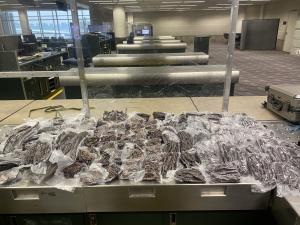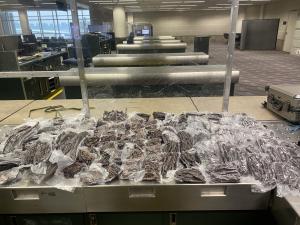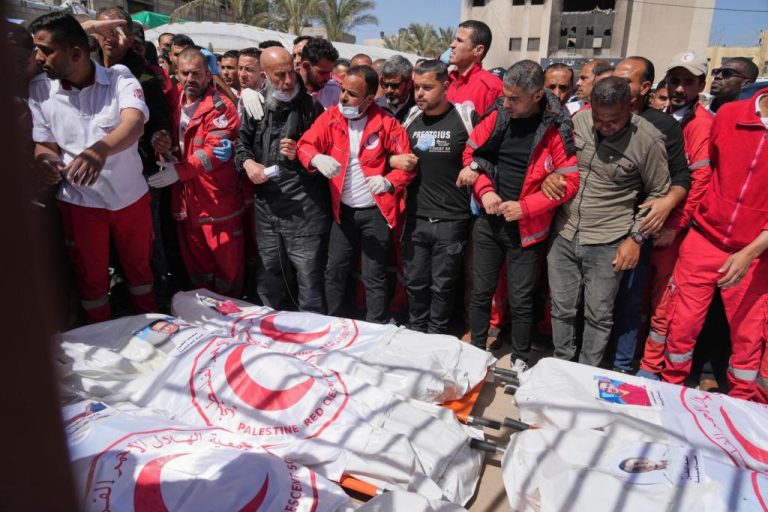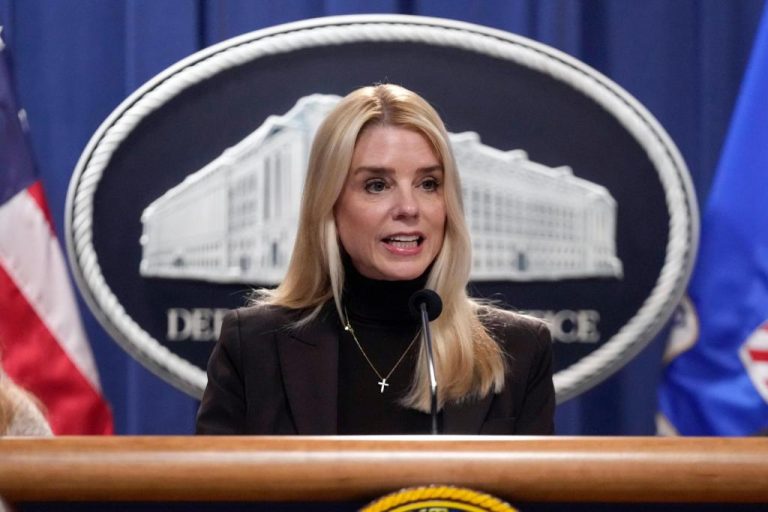
MINNEAPOLIS– At Minneapolis-St. Paul International Airport, last week a passenger arriving from South Africa was referred to Agriculture Secondary Inspection where U.S. Customs and Border Protection (CBP) discovered 83 pounds of beef biltong.
When the passenger arrived, he notified the CBP Officer that he wanted to declare the beef biltong in his luggage. When CBP Agriculture Specialists (CBPAS) x-rayed 5 of the traveler’s bags, they discovered organic anomalies. The inspection revealed 83 pounds of curried and dried beef. The passenger requested that the meat not be seized because it cost over $2,000. CBPAS informed him that cured and dried beef from South Africa was restricted due to animal diseases, including Foot and Mouth Disease, and it would be seized and destroyed via steam sterilization.
The most common items seized are pork and beef sausages, plants, plant materials, seeds for planting, and fruit. Chief CBP Agriculture Specialist, Lauren Lewis said, “during certain holidays and seasons, there is a significant increase in beef and pork, and we work closely with the traveling public to inform them of certain products that cannot enter the country due to animal diseases.”
“Minnesota’s CBP agriculture specialists are focused on their mission to prevent entry of prohibited items from entering into the United States,” said LaFonda D. Sutton-Burke, Director, Field Operations, Chicago Field Office. “This seizure clearly shows how critical their role is in preventing diseases from entering the United States.”
CBP recommends that people who wish to import plant materials, animal materials and other agricultural items consult the CBP Information Center section on the CBP website or call (877) 227-5511. In addition, when traveling to the United States, travelers should always declare all items acquired abroad to CBP officers to avoid civil or criminal penalties and reduce the risk of introducing pests and disease to the United States.
“Our nation’s food supply is constantly at risk to diseases not known to occur in the United States,” said Augustine Moore, Area Port Director, Minneapolis. “This interception highlights the vigilance and dedication that our CBP Agriculture Specialists demonstrate, daily. They ensure that the United States is safe from harmful diseases that could affect our food supply.”
CBP’s border security mission is carried out at 328 ports of entry. Please visit CBP Ports of Entry to learn more about how CBP’s Office of Field Operations secures our nation’s borders. Learn more about CBP at www.CBP.gov.






